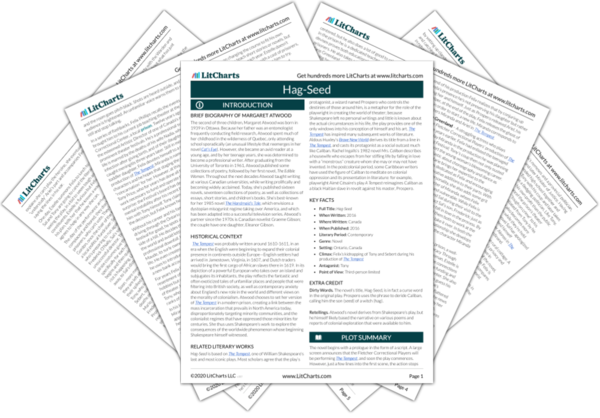In the classroom, starts to explore the history of the island where
The Tempest takes place. It was first inhabited by Caliban’s mother, the witch Sycorax. After she dies, Caliban grows up alone on the island until Prospero arrives and takes it over. Prospero and Caliban get along well until Caliban starts chasing Miranda, after which Prospero enslaves him. Still, he’s the character with the most knowledge about and best relationship with the island. Like Sycorax and Caliban, Ariel has lived on the island for a long time, but it’s hard to tell what he thinks about his home.
